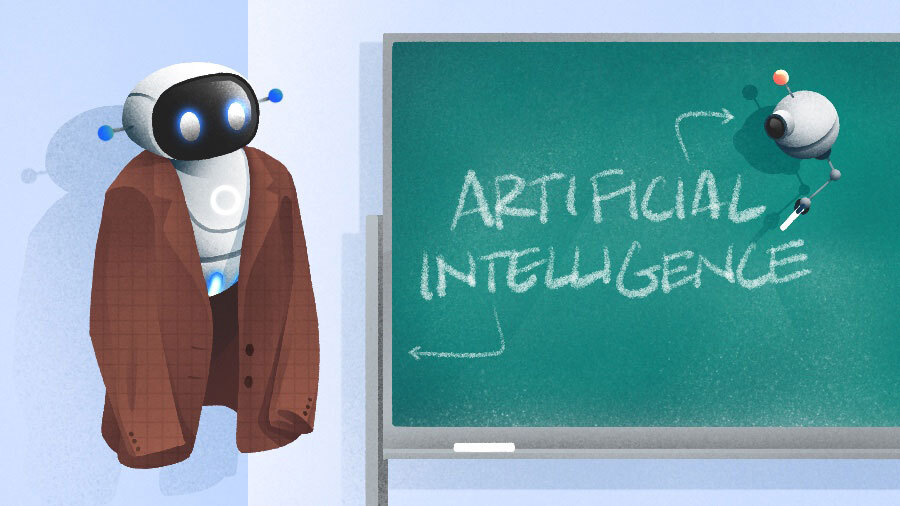
The market is exuberant about AI, and rightly so, but that exuberance has caused many VCs to lose their minds, chasing any deal with a .ai domain name.
Some of the investment rationales are based on conventional wisdom that's just wrong — I call these the "myths" of AI investing.
Here are three of the most common:
Myth No. 1: First-mover matters
So many VCs have been quoted breathlessly saying: "We have to be first and fast to catch the AI wave."
That's sloppy thinking — or, more likely, the absence of thinking. Think about Pets.com vs. Chewy. Webvan vs. Instacart. AltaVista vs Google. Myspace vs. Facebook. Being first isn't necessarily a disadvantage, but it's not necessarily an advantage either.
There are specific, narrow situations where being first is important. In a "land-grab" market, for example, the first company that spends enough to acquire a majority of customers can establish long-term hegemony.
That was the strategy behind a16z's overcapitalization of Clubhouse. It didn't work that time, but sometimes it does.
In other industry structures, though, being well-capitalized and first means you are educating customers on a new behavior and making it easy for later entrants to acquire them on the back of your investment.
With AI moving so fast, the benefits of being first are arguably even weaker than in slower-moving markets.
Google and OpenAI have spent billions of dollars on technology that Facebook is now giving away for free. This is not to say that Google or OpenAI won't be successful — they'll do fine.
But if you hear a startup or an investor citing first-mover as their primary source of competitive advantage, you need to be very skeptical indeed, as it means they haven't thought through the hard question of how to sustain advantage over time.
Myth No. 2: Exciting product = exciting business
This is a common logical fallacy, confusing necessary with sufficient. It's generally true that you need to have a good product to have a good business, but being a good product isn't nearly enough.
Netscape literally invented the World Wide Web; its Navigator browser may have been the single most impactful product of the last 50 years. Still, it turned out to be a terrible business.
In AI we are seeing new gee-whiz demos every day. There's truly amazing, science-fiction-y stuff coming out regularly now. But here's the thing: A lot of it is not going to make money.
How cool something is often doesn't correlate to its business potential. Often the real money is in the less sexy markets. Think about Netscape, the inventor of the web browser, vs. F5 Networks, a leader in — wait for it — HTTP load balancers. One generates $500 million of free cash flow; the other is an exhibit at the Computer History Museum.
Myth No. 3: Incumbents are slow and stupid
It's accepted wisdom that large companies can't innovate, and that when the world changes startups always win.
Think about Netflix vs. Blockbuster, Airbnb vs. Hilton, PayPal vs. banks, Amazon vs. Barnes & Noble/Tower Records/Walmart.
Tech companies currently occupy all five of the top spots in the S&P 500; in 2010, there were none even in the top 10. Obviously, then, new "AI-native" startups will knock off today's incumbents and achieve similar dominance, right?
Actually, no. AI companies seeking to disrupt Big Tech incumbents mostly won't succeed, because Big Tech is hyper-aware of AI, has plenty of talent, controls most of the world's data, and is spending freely.
When you hear "software is eating the world," the "world" that is being eaten is the world of traditional, nontech businesses, like Barnes & Noble. Those were businesses that treasured profits over investment (didn't spend freely), were not cool or lucrative places for innovators to work (didn't have the talent), and that misunderestimated how the world was changing (not hyperaware).
Of course, there will be successful outliers who will beat Big Tech here and there, but broadly speaking Big Tech is much less vulnerable to disruption than pre-internet companies were.
Where AI startups will succeed is in battles against nontech incumbents. The 80% of the S&P 500 that is not tech is the most vulnerable to AI disruption from startups. Industries that were too difficult to automate in the pre-AI era, and that can be automated now for the first time, are the best opportunities.
So, don't expect that AI will eat software, at least not in the sense of new AI-native companies displacing Microsoft or Apple. Instead, we can say: Software ate some of the world, and now AI has come along to eat what software could not digest.
Spencer Greene is a general partner at TSVC, a Silicon Valley-based venture capital firm focused on building and scaling early-stage technology startups. Greene's investment focus is on the future of work and digital health. He has led TSVC's Fund IV investments in Greenlight, Vervoe, Brainome and Angle Health. He's also the lead of "Design for Exit" — a theory that explains why a company's "acquirability" is not always predicted by its business results.
Source from CrunchBase.com
Domain Name - Register Domain - Transfer Domain - Bitcoin - USDT
.AI | .COM $13.99, .INFO $9.99, .HK $16.99
ICANN & Verisign & HKIRC Accredited Registrar
Shared Hosting & Dedicated Server Provider (HK)
Next News: 14 mistakes to avoid when choosing a domain name (and lessons learned)

















